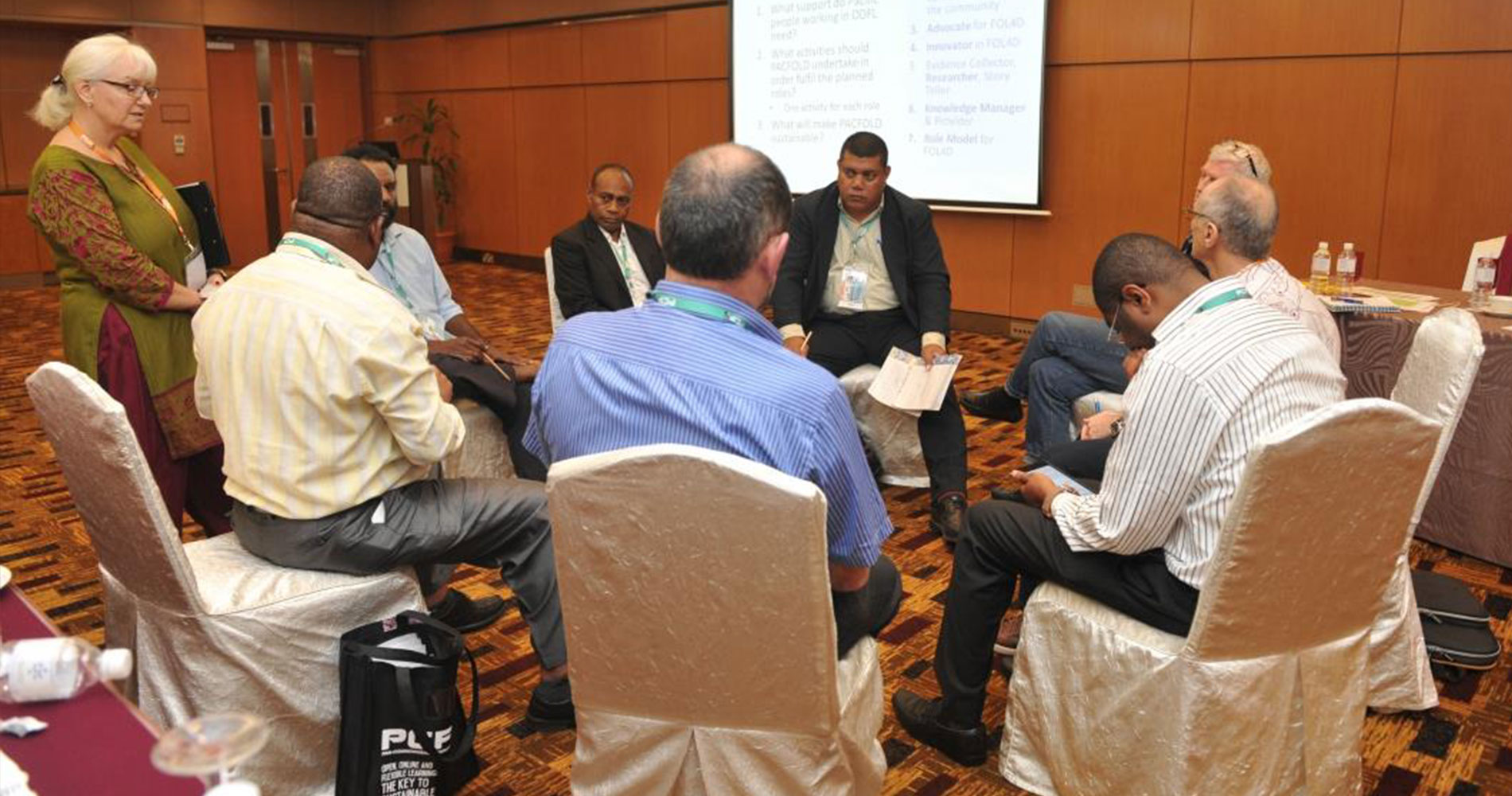
SUB THEME: TECHNOLOGY AND INNOVATION
PARALLEL SESSION 4 & 5
Girls Inspire: Sustainable Development, Data on Women and Girls Matters
Conference Hall, KLCC, 29 November: This session saw four inspirational women took to the stage to deliberate on the importance of data collection to effect change on women and girls. The speakers were Dr Phumzile Mlambo-Ngcuka, UN Under-Secretary-General and Executive Director of UN Women; Ms Chetna Sinha, Founder and President of Mann Deshi Foundation; Ms Sadia Husain, CEO of Society for the Protection of the Rights of the Child (SPARC); and Dr Freda Wolfenden, Open University, UK.
Facilitator Frances Ferreira, Senior Adviser for Women and Girls of COL, introduced “GIRLS Inspire: Learning for Empowerment” which was an initiative by COL to achieve the objectives of women’s equality and empowerment through education. These objectives are meant at (1) ending child, early and forced marriages and (2) promoting gender equality and women empowerment. She also talked about the “theory of change” because without data, change could not take place.
Dr Mlambo-Ngcuka contended that data collection was crucial because with the lack of statistics on the number of women and girls living in poverty, it would be difficult to effect change. There is currently an illusion of success in relations to where women stand in terms of gender equality but the reality remains that sufficient data is still lacking to support the assumption.
Ms Sinha, the recipient of COL’s Honorary Fellow, spoke of the advantages of using innovative initiatives in ICT to generate digital data that could push governments and policymakers to re-look at existing policies.
In achieving the objectives of COL’s GIRLS Inspire, Ms Husain stressed the importance of ensuring that data collection was comprehensive and qualitative. Her findings revealed the nine factors that prevented women and girls from attending schools. They relate to issues on school quality, safety of the environment, effects of incentives, economic barriers, family background, attitude towards schools, psychological barriers, cultural barriers and Governmental support.
Various initiatives by SPARC to empower women and girls were provided through vocational training at centres and safe houses.
Dr Freda Wolfenden said the SDGs should not be confined to the least developed countries but also extended to developed countries like the United Kingdom. She said data collected in the UK may not have the same efficacy or relevance as in Sierra Leone.
She added that unless concerted efforts were made to improve data collection, it would be time-consuming to gather evidence needed by organisations to facilitate change.